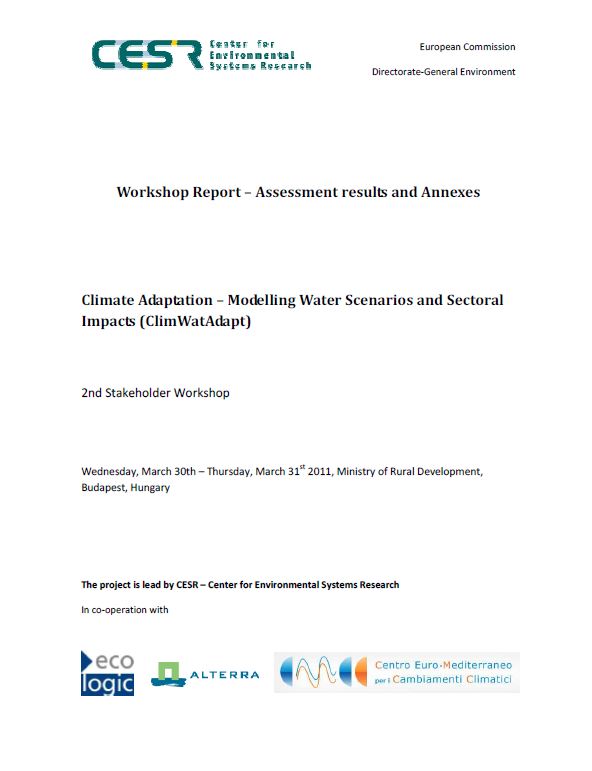This project is an important project of the European Commission for preparing its comprehensive adaptation strategy. It aims at evaluating water related vulnerability to climate change impacts and identifying adequate adaptation measures. It sheds light on vulnerability and adaptive capacity in different affected sectors and across Europe’s river basins. The project shall thereby support coherency, timeliness and effectiveness of climate change adaptation efforts throughout Europe.
In addition, the project shall also improve the knowledge base and facilitate the exchange of adaptation best practice between countries and regions. The main objectives of this study are:
- To assess the vulnerability to climate change using a set of comprehensive scenarios. These scenarios shall provide a reference point for mid- and long-term strategic planning of adaptation measures in Europe. The use of different scenarios allows for the analysis of vulnerability depending on different development pathways.
- To identify and assess potential adaptation measures to reduce vulnerability to climate change. In a first step, an inventory of adaptation measures is assembled drawing on existing databases and studies. In a second step, selected adaptation measures will be assessed for their effectiveness to reduce vulnerability to climate change. Depending on measures identified and models available, the effect of adaptation options are evaluated either qualitatively or quantitatively. The level of analysis will be based on the availability of data and tools and will be comparable across regions and sectors to the extent possible.
- To put in place an integrated assessment framework. This integrated assessment framework (IAF) will finally bring all information together combining scenarios, datasets, the inventory of measures, tools, and stakeholder knowledge. Dependent on the data available, the basic geographical resolution covers river basin and NUTS-2 levels, focusing on the four sectors agriculture, energy, industry, and domestic/tourism. Additional information from the regional and sectoral perspective is expected to come from expert meetings and stakeholder workshops.
The most important outcome of the project will be the integrated assessment framework which brings all data and information together and will be included into the EU clearing house on adaptation.
Ecologic Institute is responsible for putting together the inventory of measures and for preparing and conducting expert and stakeholder meetings. In preparation for two stakeholder workshops a project website will be set up providing tailored background information for the workshops and laying the ground for targeted discussions. The website will be accessible from this site once completed. Ecologic Institute is also contributing to the other tasks of the project, for example the assessment of measures.





